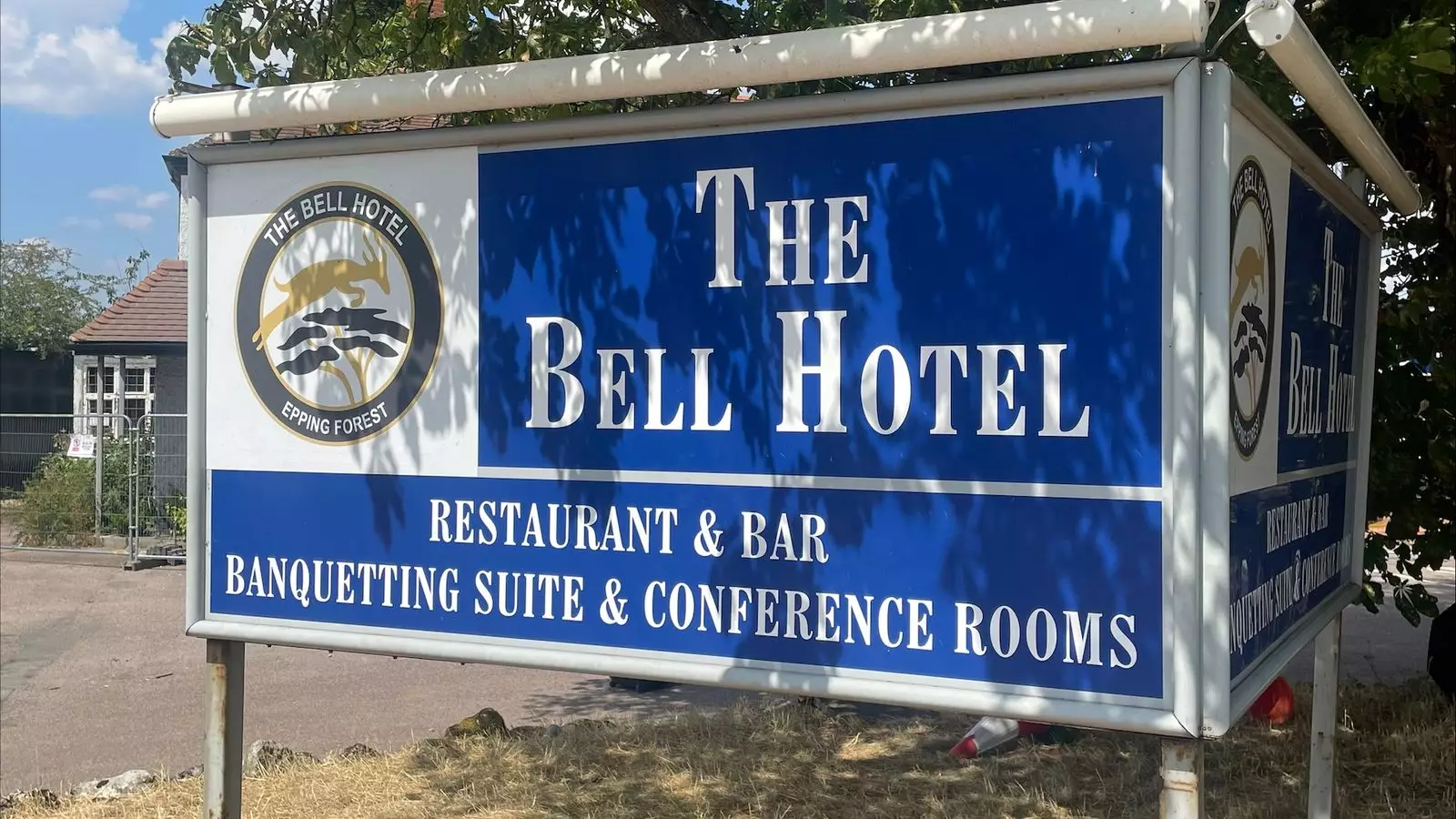The recent legal victory by the Essex council to temporarily halt the housing of asylum seekers at The Bell Hotel in Epping exposes the deep-rooted societal tensions surrounding immigration and local community priorities. While some interpret this as a vital step toward safeguarding residents’ well-being, others see it as a reflection of an increasingly divided society grappling with its collective identity and priorities. The council’s move to secure an injunction, driven by concerns over safety and planning violations, underscores the palpable anxiety among local residents—manifesting a broader unease about the rapid changes in community demographics. This opposition signifies more than just a legal dispute; it is a microcosm of a society struggling to reconcile principles of compassion with concerns for security, stability, and local control.
The legal proceedings highlight an uncomfortable truth: integration policies and accommodation strategies are often born in tension with local sentiments. The council’s focus on preventing housing that does not adhere to proper planning or safety standards underscores the need for government accountability; however, it also raises questions about whether this is a means to uphold long-term societal cohesion or an opportunistic move capitalizing on populist fears. Critics argue that such actions threaten the essence of a tolerant, diverse society—favoring exclusion over inclusion, and bureaucratic rule over human rights. It is essential to scrutinize whether these legal victories genuinely prioritize residents’ safety or merely serve as political gestures rooted in fear and suspicion.
Security Concerns Versus Humanitarian Compassion
A significant facet of this debate revolves around safety—particularly in the wake of recent protests and allegations involving asylum seekers housed at the hotel. The charges against Hadush Gerberslasie Kebatu have amplified fears among residents, fueling emotional reactions that often overshadow rational discourse. While the seriousness of criminal allegations cannot be dismissed, conflating individual cases with the broader refugee population is a perilous step that risks fostering stigma and xenophobia. Does a single charged individual justify the disruption of potentially vital housing programs? Or does it exemplify how fear-mongering threatens to derail the long-standing moral obligation to offer refuge?
It is vital that society not succumb to hyperbole, but rather approaches these incidents with a critical lens—distinguishing between genuine security concerns and politically motivated scapegoating. The challenge lies in balancing the legitimate needs of a community to feel safe with the moral imperative to provide sanctuary for those fleeing conflict and persecution. Community-led dialogues that foster transparency and understanding are far more effective than reactive legal battles fueled by misinformation and prejudice. Ultimately, policies designed solely to appease fear risk undermining the very fabric of liberal values—compassion, fairness, and justice.
The Role of Political and Economic Factors
Beyond local fears lies a complex nexus of political and economic considerations. The hotel’s financial dependence on asylum seeker contracts reveals how economic necessity can intersect with immigration policy. For many small businesses, housing asylum seekers is not merely a moral choice but a financial lifeline amidst economic instability. Yet, this reliance intensifies the political controversy: are these arrangements sustainable, or are they mere band-aids masking systemic failures in housing, social integration, and public service provision?
Moreover, the legal proceedings expose how political narratives are often manipulated to serve specific agendas. The assertion that the hotel is functioning improperly as a housing site—despite repeated use—illuminates the opaque and often inconsistent planning regulations directed at managing migrant accommodations. The political debate is charged with questions of sovereignty, local autonomy, and national duty. As protests flare and legal battles intensify, it becomes clear that immigration policies are not solely about humanitarianism but also about political identity, resource allocation, and societal control.
The challenge for progressive, center-left liberals is to advocate for comprehensive, humane policies that reconcile these competing interests without succumbing to fearmongering or short-term political gains. Longer-term solutions should focus on creating sustainable, community-integrated, and well-regulated housing strategies that emphasize dignity for migrants and security for residents alike.
Shaping a Society of Balance and Humanity
Ultimately, the controversy over housing asylum seekers at The Bell Hotel encapsulates a broader societal dilemma: how do we create communities that are both open and safe? The tension between the rights of vulnerable individuals to find refuge and the concerns of local residents signifies an ongoing struggle to craft policies rooted in justice, empathy, and practicality.
In a truly humane society, laws and community responses must transcend reactionary politics and foster inclusive dialogue. Resentment and fear are natural human responses, but they must not govern policy. Instead, society must aim for a balanced approach—prioritizing transparent planning, community engagement, and robust safeguards that protect both human rights and local stability. Temporary legal victories, while significant, are merely moments in a long-term journey toward building resilient, accepting communities where diversity is regarded as strength rather than a source of division.

